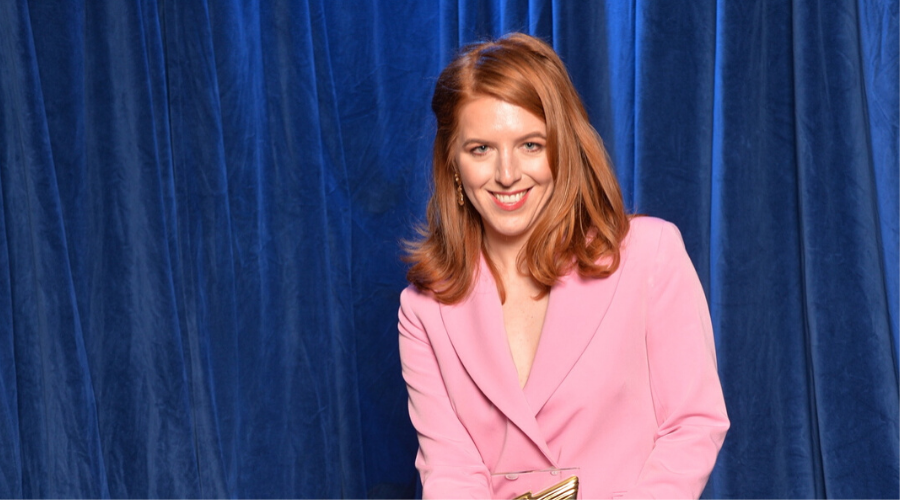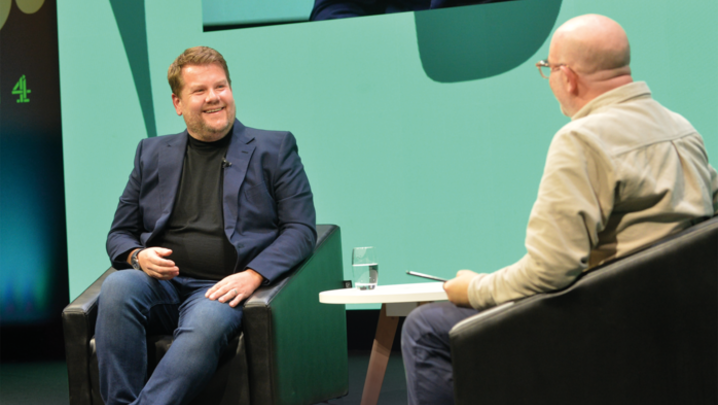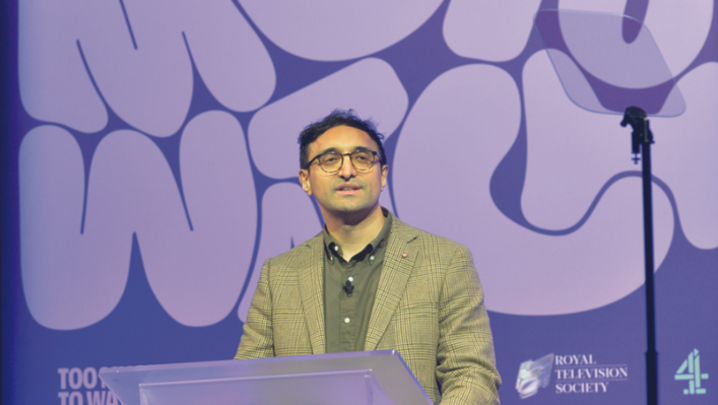Sky News sports reporter Martha Kelner was voted Young Talent of the Year at the RTS Television Journalism Awards. Shilpa Ganatra charts her journey
These are strange times to be a sports reporter. All national and international fixtures and events have been cancelled. The Premier League, Euro 2020, the Masters, French Open, Grand National, Olympics, London Marathon and Wimbledon are among the events that have been affected.
But Sky Sports’ Martha Kelner is taking things in her stride. “I’m going to be covering the sport developments as and when they happen, but obviously not doing European football championships or Olympics, so I will contribute to the general news coverage as and when I can be helpful,” she says. “At the moment, I’m up north doing a couple of stories about how charities are affected and also how young people/adolescents are affected by the lockdown.”
Journalism was always on the cards for Kelner. Even as a child growing up in Wakefield, West Yorkshire, she would “devour, cover to cover,” the pile of Sunday papers bought by her father, who worked in radio. But side-stepping from her early career in print to broadcast and winning acclaim in just over a year was very far from fated. So was being declared Young Talent of the Year at the RTS Television Journalism Awards in February.
“It was unexpected. I was new to TV, so I thought the RTS judges wouldn’t think I was polished enough,” she says. “The two other nominated journalists [Yousra Elbagir and Ben Hunte] are renowned, so I was delighted, not just for me, but also for the people who I’ve worked closest with.”
Those include Kelner’s producers, Sarah Dawkins and Rachel Lynch, who helped her adjust to the new medium, “because it’s not just like starting a new job – it’s almost like starting a new career”.
If that’s the case, she is certainly up to speed, with her slick broadcasts and warm authority making for welcome viewing. Plus, with her bulging black book, reporter’s radar and irrepressible work ethic (her first report at Sky Sports was covering the Leicester City helicopter crash, a week before she officially started), few are better at delivering a strong sports story.
After studying journalism at Sheffield University, which gave Kelner both NCTJ and BJTC accreditation, she swiftly picked up work experience on newspapers in London.
That came thanks to family contacts, a situation she makes no bones about. Her father is radio journalist Martin Kelner and her uncle is Simon Kelner, former editor of The Independent, who was earlier assistant sports editor of The Observer. “I’m grateful to have had that leg up,” she says. “I know that there are a lot of talented people who struggle to get on the journalism ladder. It’s hugely competitive and some can’t afford it.
“People might think, ‘you’ve only got this job because of nepotism’, but I think your name only gets you so far. If you’re no good, you’ll quickly get found out.”
Growing up, Kelner was particularly into netball, and “in most of the A-teams, but not a standout sportswoman”. It was her father’s keen interest in sport that made it a natural area for her to explore. She started her working life, in 2011, as a trainee on the Daily Mail, and was promoted to athletics correspondent before moving to The Guardian, where she eventually became its chief sports reporter – the first female one, no less.
‘At a Premier League event, [I was] the only female journalist among 30 or 40 reporters’
Throughout her eight years working in print, she broke major news stories. These included four-time Tour de France winner Chris Froome’s failed drug test in the Vuelta a España, the systematic doping of Russian athletes, and the first interview with Jess Varnish following her allegations of sexism and bullying within British cycling.
These helped Kelner win Sports Journalist of the Year at the Press Awards in 2017 and Scoop of the Year at the Sports Journalists’ Association Awards. The RTS Television Journalism Awards judges said: “She gets beneath the sports headlines to underlying issues and has built an enviable track record in breaking stories, pursued with skill and energy.”
Kelner says: “For me, the ultimate rush as a journalist is breaking stories and finding out things that other people don’t know – that has always been my primary motivation.”
It continued when she moved into broadcast in late 2018, after Sky invited her to apply for the reporter position. She clearly loves the immediacy of broadcasting and that, on TV, she can tell a story direct to an audience live from a location. “I’m at the point where I get more enjoyment at the moment telling stories for broadcast,” she says.
“I like the fact that there’s no hiding. You’re there telling the stories as they happen. You can reflect what is happening through noise and sound, which is something you can’t do in print.
“When Bury was expelled from the English Football League – and Bury wasn’t just a football club, it was the centrepiece of the community – we stood outside the stadium with hundreds of people all day. We had the cameras rolling as they were crying and mourning the loss of this major part of their lives. That felt powerful.”
Another difference between print and broadcast is the type of attention she generates on Twitter. Tweets about her Yorkshire lilt are not uncommon. Twitter’s “mute function” does the job of tackling the trolls, and she talks it through with her family, friends and boyfriend, an acoustic engineer, “because it can get to you”.
Being a woman in what has traditionally been a man’s domain presents its own challenges. While she cites Gabby Logan and Jacqui Oatley as among those helping to break the mould, “it’s slowly changing but, in the early days… when I asked a question at a press conference, everyone would turn around, thinking, ‘who’s that woman who’s managed to sneak in?’. Even the other week, I was at a Premier League event, and the only female journalist among 30 or 40 other reporters.”
How did it feel to be the only woman in the room? “I was never intimidated by it. A lot of my really good friends are those men now. I’ve never found it difficult to work alongside them.”
The audience reaction to female presenters seems to be slower to change. She recalls that her taxi driver from the previous day was “quite vitriolic” about female sports presenters.
“We were just chatting about coronavirus and saying how it would affect our work, and when I said I was a sports journalist, he told me, ‘I don’t feel like women should do that. When I hear a woman commentator on the radio, I switch it straight off’.
“I think that view is actually widespread. But diversity is absolutely key – whether that’s people from ethnic-minority backgrounds, a regional background, from different social [classes] or women. Because our audience is not homogenous; and, if you have a sea of the same people reporting, you miss stories because you don’t see them as stories.”
Venturing into other subject matters is a move Kelner would welcome. Approaching 30 years of age, she is open to the direction her career could take, as long as it involves “doing different things and challenging myself. I’d like to report abroad at some point, and I really like long-form journalism.”
We are seeing seismic changes in television as the pandemic unfolds, so further changes for Kelner could happen sooner than she thinks – which would be very much in keeping with her career so far.







